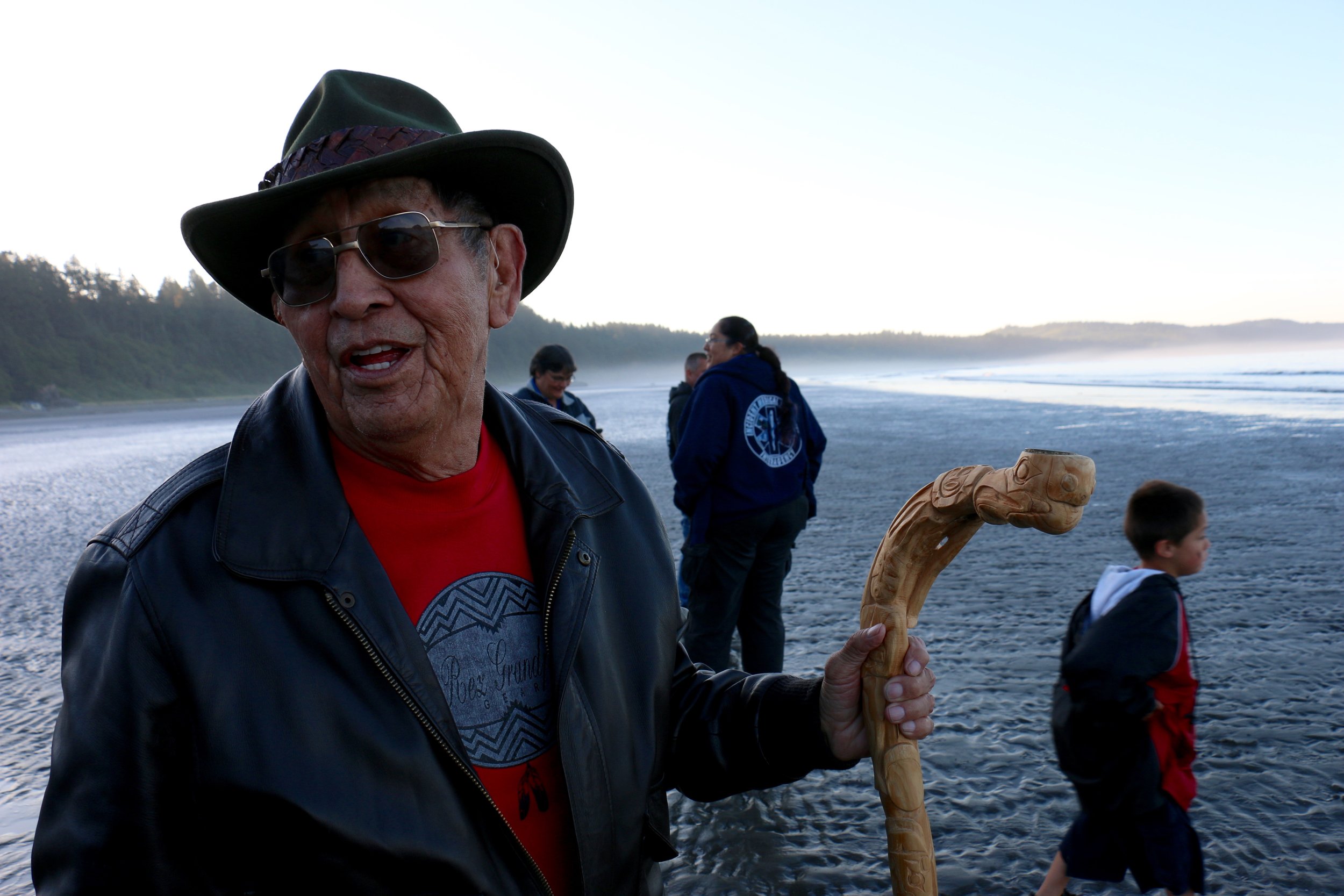Tribal Canoe Journey
Every year, Indigenous nations throughout the Pacific Northwest embark on an epic voyage, paddling from places as far flung as Haida Gwaii, British Columbia and Grand Ronde, Oregon, before converging on a host community for a week of potlatch singing, dancing, feasting and giveaways. The journey is one of the most important and impactful Indigenous cultural, social and political events of our time.
My 5-part CBC series and National Magazine Award nominated Canadian Geographic feature share just a few of the stories that emerged from the water, land and people along the 2017 paddle to Campbell River, B.C.
An odyssey to reclaim tradition and territory
My alarm sounds at 3:45 a.m. — so early it might be considered night. There’s only one bed in my dad’s rental cottage in Shelton, Wash., so when I visit, we choose sides. I roll over, smacking him with my forearm, waking him, too.
Tribes depart Washington
Arcadia Point, Washington, July 17 — It's Monday morning rush hour in Seattle. Just 40 miles to the south and west, in the traditional territory of the Squaxin Island Tribe, a very different kind of journey is about to begin.
'The border is not our border'
Esquimalt Harbour, B.C., July 25 — Five canoes representing the Jamestown S'Klallam, Queets, Quileute and Quinault tribes departed Washington state, crossing the treacherous Strait of Juan de Fuca for Vancouver Island. Eight more canoes from the west coast of Vancouver Island arrived with them in Esquimalt Harbour on Tuesday, July 25.
Water is life, water is time
Salish Sea, July 26 — "Squaxin Island pullers, it's time to get up!" Joe Seymour, one of the skippers who captains our canoe, isn't beseeching. He's ordering. It's 5 a.m. The sun has yet to rise. Even the birds are still sleeping. "Squaxin Island pullers, it's time to get up!" Joe has to repeat himself because — let's face it — if he didn't, we, the Squaxin Island pullers, would fall back to sleep in seconds.
Understanding the 'cannibal dance'
Comox, B.C., Aug. 2 — A flotilla of over 50 canoes representing Indigenous communities, from ports as distant as the Quinault and Squaxin Island reservations in Washington state, paddled into K'omoks First Nation territory on Wednesday. As skippers beached their canoes, bows resting gunwale to gunwale on K'omoks shores in a formidable line that linked history to future, crews broke into the paddle songs of their respective home waters, celebrating the joys of arrival, kinship and community.
'Like a reawakening'
Tyee Spit, B.C., Aug. 5 — The canoes kept coming. Eighty-seven in total arrived at Tyee Spit on the traditional territory of the Wei Wai Kum Nation in Campbell River, B.C., the final port-of-call on the annual Tribal Canoe Journey.
1st Place - Best Feature, National American Journalists Association
Many thanks to the Canadian Journalism Foundation for making this project possible.






